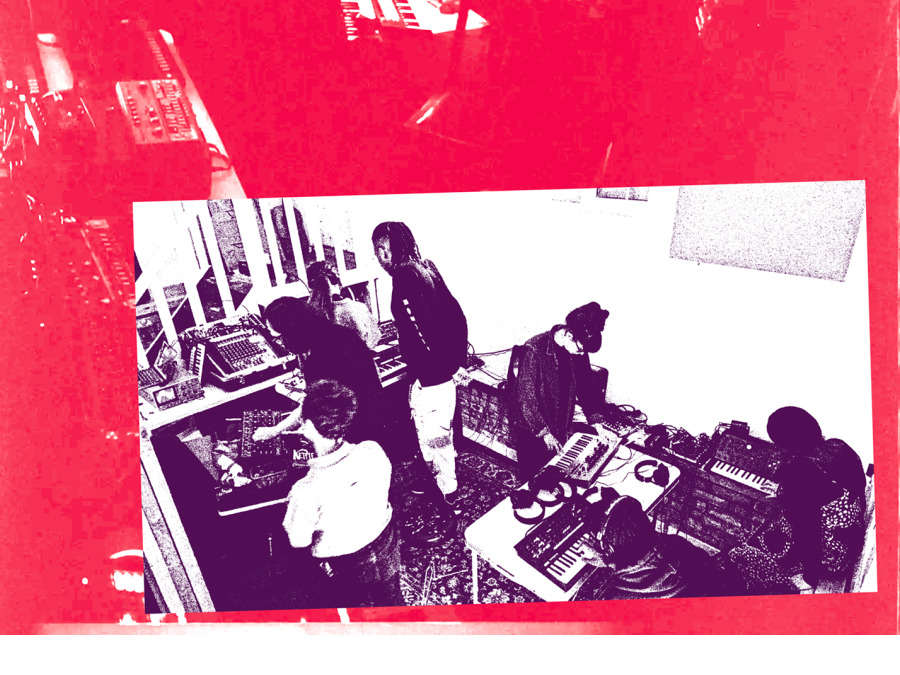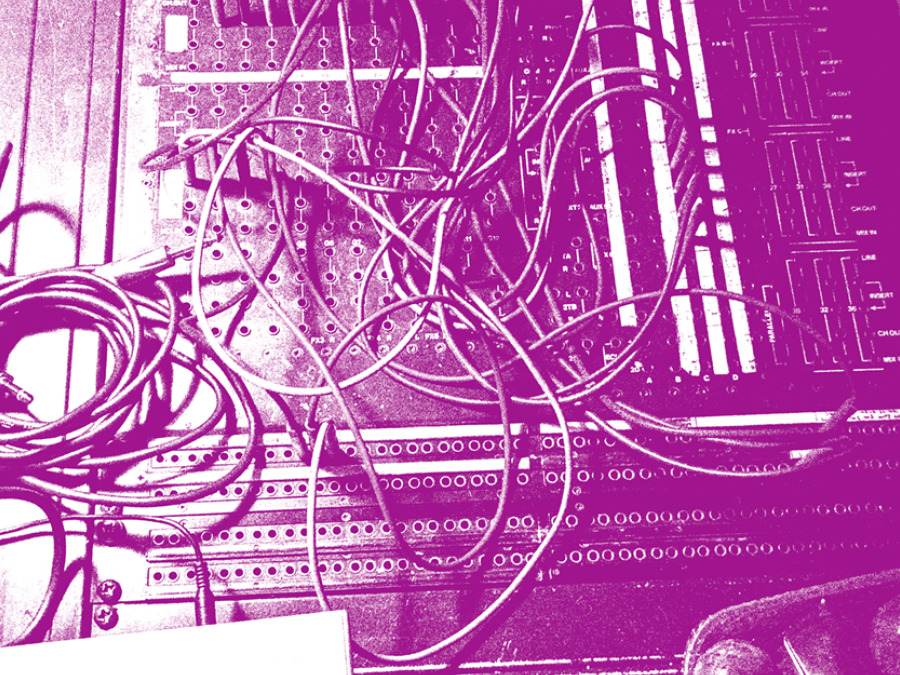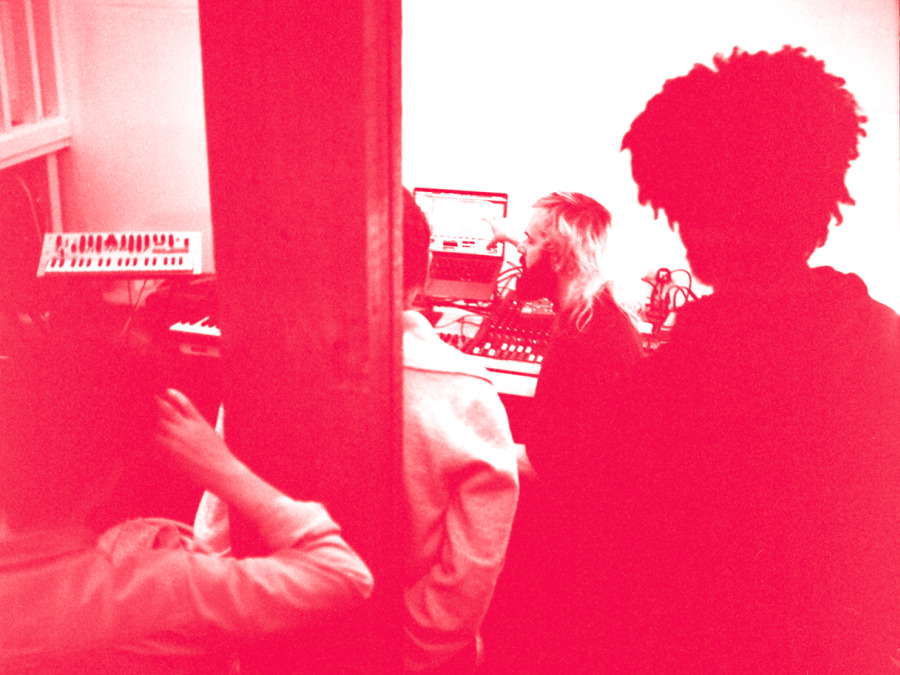Lewis Cook on Glasgow Library For Synthesized Sounds
We catch up with Free Love's Lewis Cook about his latest venture GLOSS – Glasgow Library of Synthesized Sounds – and their forthcoming Introduction to Electronic Music series
It all started with a bodhrán. During lockdown, Lewis Cook – one half of Glasgow duo Free Love, alongside his partner Suzi – craved something new, finding it in online lessons for the Irish percussion instrument. “Fuck, it was amazing,” he remembers. “I was learning so much, meeting like-minded people.”
He learned a new skill; it also provided a small, but powerful, spark. Could he create the same educational and community-minded space for the knowledge and technique he and Suzi had accumulated making electronic music? The Cooks used social media to promote the idea, getting a bit of a rub from Synthstrom Audible, which manufactures sequencers, synthesizers and other electronic music gear. It resulted in around 80 people, from Europe to India, attending online workshops discussing how to use hardware, software and other resources to make electronic music.
They were a huge success, but what started as something relatively simple has turned into a long-term project looking to democratise the way electronic music can be created, making it more accessible, affordable and community driven. This month, Lewis and Suzi launch the second in-person run of ITEM – Introduction to Electronic Music – a series of free workshops at La Chunky Studios in the West End of Glasgow borne out of that passion to share wisdom around a genre of music that can be daunting and obfuscated to outsiders.
Building on the initial success of the programme – which saw 200 applicants vie for 16 places – musicians of all experiences will be able to join multi-level classes that continue to explore ideas of electronic music history, culture and practice. Thirty-two places will be available on the first level scheme, with an additional ten on a second, more advanced level. This round of the project has received backing from Creative Scotland, and input from Rubadub, Instruo, Ableton, and other major electronic music players.
“[The first ITEM] had participants who'd already been very successful musicians, but maybe hadn’t touched electronics, to people who had never picked up an instrument before and were just interested in making music,” says Lewis. “It brought everyone to this similar level and suddenly you've got all these ideas bouncing around: just because someone hasn’t played music before doesn't mean they're not creative, and we were able to give them the tools to apply their great ideas.”
Lewis stresses that ITEM is not just about providing instruction manuals to work a modular synthesizer. “The point of this isn't: ‘Here's a slab of information. Now, you go do the work’. We're creating space and time for people to come learn together and share what they produce – less just sitting in a darkened room with the glow of a screen in front of you, making what can be quite an isolating thing into more of a communal experience.
“I feel strongly about trying to recognise electronic music in the same way somebody might recognise a folk art or tradition. This is our modern folk: this is a culture, a heritage, a history. So we're not just outlining the latest gear and how to use it, though that is part of it – we’re learning what makes an 808 the sound everyone recognises, why is it in the cultural lexicon, what does it mean, things like this. You won’t just be a qualified engineer, you’ll hopefully be inspired and informed by the history and the culture that surrounds electronic music, understanding that it’s not just a pile of buttons and sounds.”
When talking about these ideas and how it has manifested in ITEM, Lewis fizzes with a palpable excitement about it all. That has been further channeled into the Glasgow Library of Synthesized Sound (or GLOSS), a non-profit intended to act as a sustainable infrastructure for ITEM and a host of other progressive ideas geared towards making electronic music something anyone can get involved in.
Based on similar pursuits in Prague and Los Angeles, the first innovation on the agenda is a library “which will have instruments and resources that would be otherwise out of reach, ranging from gear that would usually be unaffordable, old, rare pieces that are barely being used anymore that have a particular sound, or notable instruments and equipment used by actual artists on specific records,” says Lewis.
There are aspirations for a permanent residence, but as the project gains steam, pop-ups and other outreach is in the works. “It feels like the right time for Glasgow to have this kind of signposting centre which brings together all these different worlds [within electronic music],” explains Lewis. “Being in Glasgow, we’re outside the main financial infrastructure of what goes on in the music industry, but that doesn’t necessarily have to be the case. We’re lucky because we have a very strong scene and things can work when people band together. We can end up creating something of significance that people have to take seriously.”
The next series of ITEM starts on 7 Jan; sign up to the GLOSS mailing list at gloss.scot for future series, and follow them on Instagram @gloss_cic


